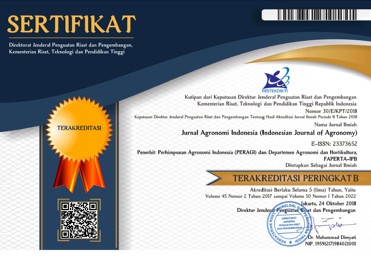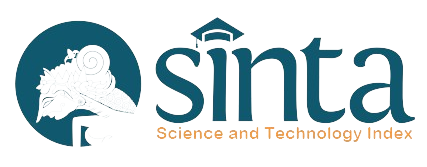Penampilan Tebu dari Benih Bagal dan Budchip pada Dua Tata Tanam di Lahan Kering
Keywords:
Bahan tanam, hasil hablur, pertumbuhan, produktivitas, Saccharum officinarum
Abstract
Sugarcane and replanting programs require a lot of seed cane and can not be fulfilled from budsetts. To fill up the gap the use of budchip seedlings is suggested. The appropriate planting arrangement for budchip seedling has not been studied thoroughly. The study was conducted at the Asembagus Experimental Station, Situbondo, East Java, from January to December 2014 for the plant cane (PC) and from January to December 2015 for ratoon cane (RC). Research was arranged in a randomized block design with three replications. The treatments consisted of (1) single budsett in single row planting, (2) double budsetts in double rows planting, (3) single budchip in single row planting, (4) single budchip in double rows planting, and (5) double budchips in double rows planting. The results showed the budchip seedling increase productivity 14.46-15.46%, sugar yield 18.17-23.38%, and profit 873% from budsett seedling. Double rows planting with budchip seedling increase productivity 52.11-61.01%, sugar yield 48.51-61.84%, and profit 603% from single row planting. Double rows planting suitable for budchip seedling is single budchip with productivity 52.53-88.30 ton ha-1, sugar yield 3.69-8.17 ton ha-1 and profit IDR 9,123,000 ha-1 per year.Keywords: growth, planting material, productivity, Saccharum officinarum, sugar yield
Published
2018-01-15
How to Cite
,D., ,L., & Supriyono dan. (2018). Penampilan Tebu dari Benih Bagal dan Budchip pada Dua Tata Tanam di Lahan Kering. Jurnal Agronomi Indonesia (Indonesian Journal of Agronomy), 45(3), 299-307. https://doi.org/10.24831/jai.v45i3.12311
Section
Articles












